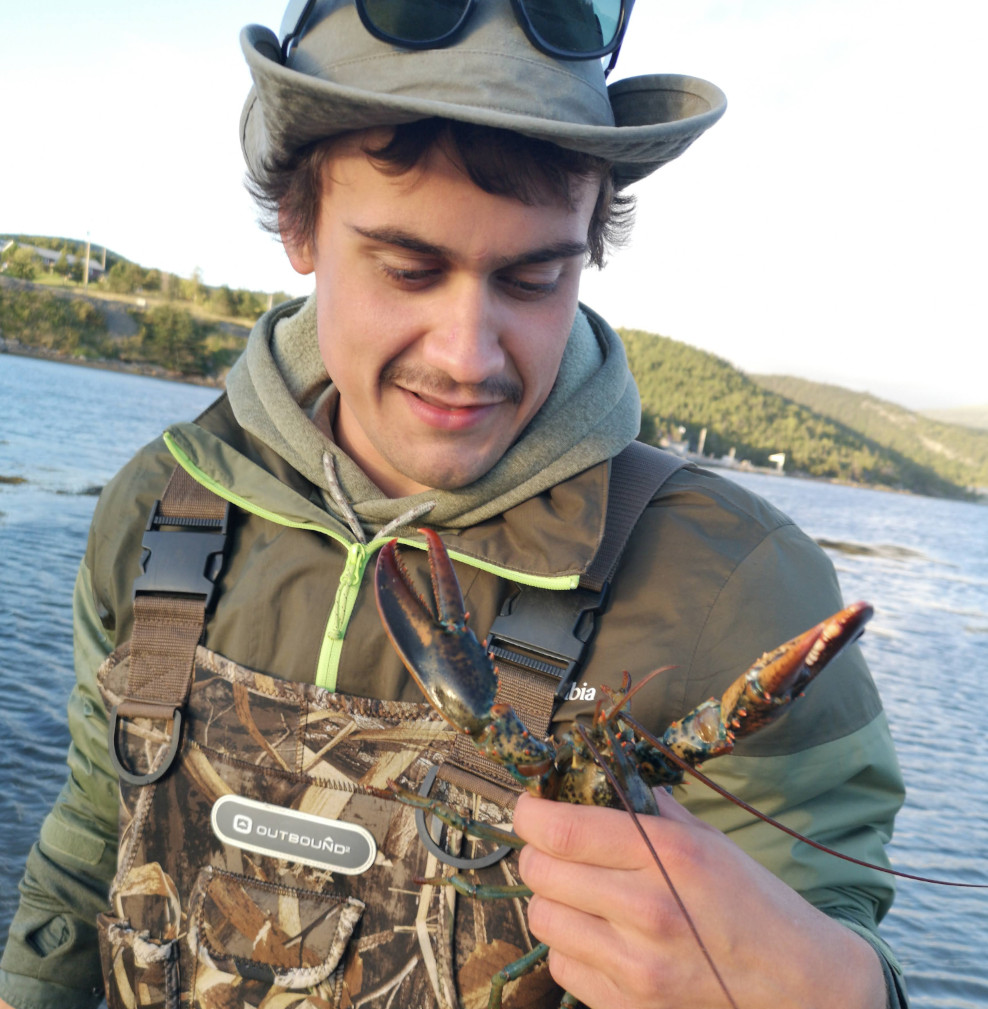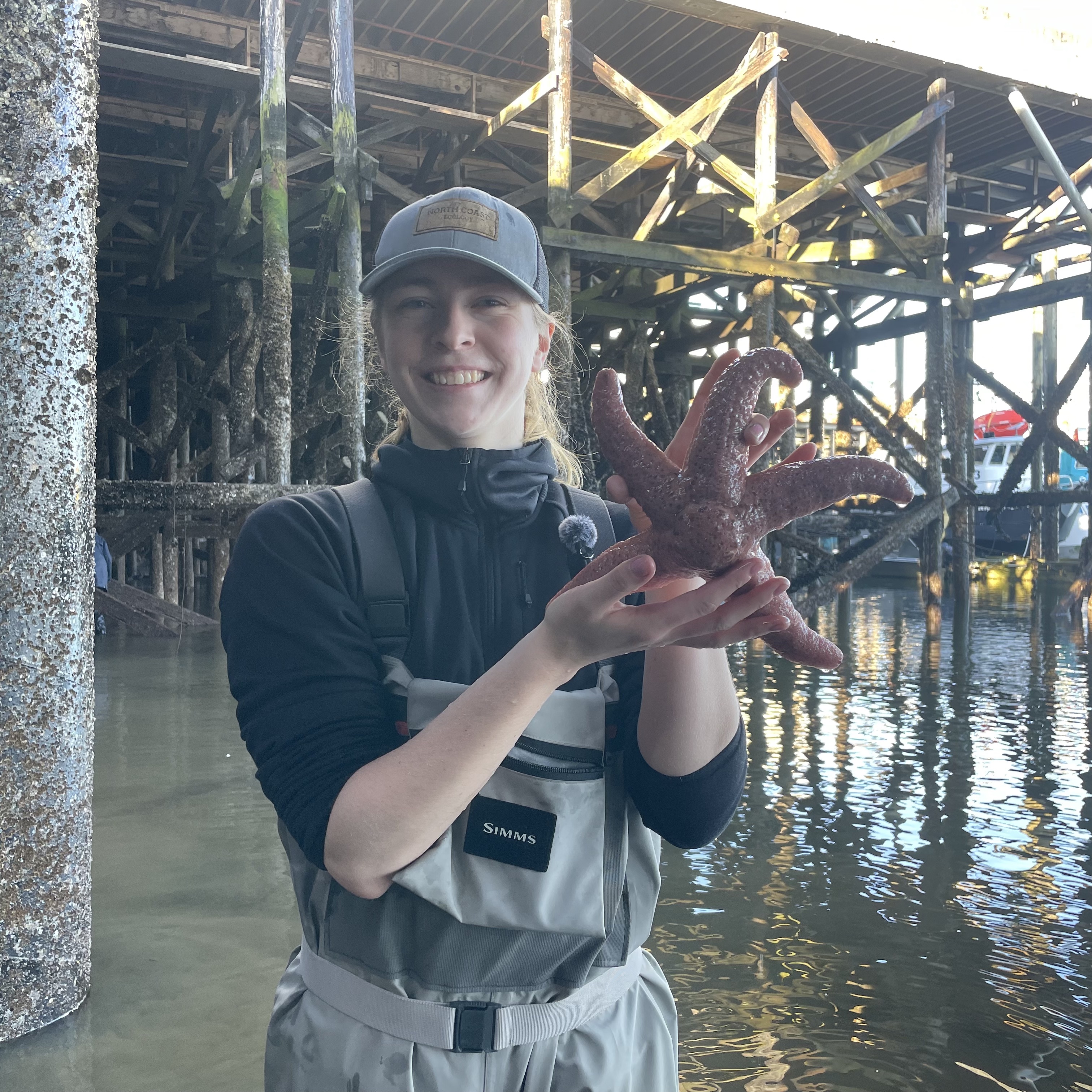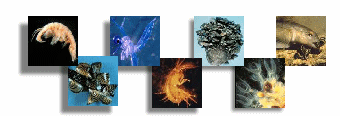Home
Page

Research Interests

Curriculum Vitae

Students
Victoria
Van Mierlo
Ivana
Komendic
Emma Schubert
Ty Colvin
Maddie
Picard

Selected Publications

Media Coverage

Invasive Species

Lab News

|
 |
|
Graduate Students
|
VICTORIA VAN MIERLO
Environmental mediation of the establishment
and impact of invasive crayfishes.

|
|
My PhD research examines environmental factors
that influence the abundance and impact of
aquatic invasive species, using crayfish as a
model organism. Overall, I am applying
hypotheses and concepts in invasion ecology to
understand context dependencies, and I am
working with two invasive crayfishes. My
specific objectives are to 1) predict the
colonization and potential impacts of the
marbled crayfish in the Great Lakes basin, and
2) relate the occurrence and local abundance of
the spinycheek crayfish to environmental
variables in the upper St. Lawrence River.
Previously, for my MSc I worked on occupancy
models for the virile crayfish invading the
North Saskatchewan River basin and the potential
interactions between invasive crayfish and
native fishes using stable isotopes.
|
 |
|
IVANA KOMENDIC
Factors affecting the impact of invasive
mussels in spatially heterogeneous
environments.

|
|
For my Ph.D. research, I am investigating
zebra mussel invasions of two Quebec lakes, L.
Memphremagog and L. Témiscouata, both of which
are in early to mid stages of invasion and
present unique environmental conditions (e.g.,
suboptimal calcium concentrations). I am testing
empirical models of population abundance as well
as the ecological impacts of zebra mussels in
these lakes. More specifically I am examining
impacts on native unionid mussels. Lastly, I
will conduct a risk assessment of zebra mussel
colonization and impact potential in lakes.
|
 |
|
EMMA SCHUBERT
Direct and indirect effects of goldfish
invasions on pond ecosystems.

|
|
For my MSc research, I will be focusing on the
invasive common goldfish (Carassius auratus)
and its effects on turbidity, temperature, and
benthic algal growth in urban and natural pond
environments. Due to their benthic foraging
behaviour, goldfish are known to increase the
turbidity (suspended sediments) of aquatic
environments. This has negative effects on the
local ecosystem. I will be conducting an outdoor
mesocosm study at the Gault Nature Reserve using
a variety of densities of goldfish to determine
the possible effects of goldfish density on
three pond ecosystem characteristics. This
research will explore the possible future
impacts of goldfish on freshwater ecosystems at
risk of invasion, as well as quantify their
current impacts on invaded ponds.
|
 |
|
TY COLVIN
Temporal changes in biodiversity of St.
Lawrence River benthic invertebrate
communities.

|
|
For my Ph.D. research, I am
investigating patterns of benthic invertebrate
biodiversity change in the St. Lawrence River
over the past 40 years and relating
spatiotemporal changes in benthic communities to
different species invasions and climate warming
thresholds. To this end, I am comparing modern
benthic communities along the river to long-term
historical community data and relating
biodiversity change to the establishment and
spread of specific invasive species. I am also
conducting field experiments to test hypotheses
on the role of different invaders in influencing
benthic communities, particularly invasive
gobiid fishes, dreissenid mussels, and their
interactions.
|
 |
|
MADDIE PICARD
Context-dependent performance of a new
invader, the tubenose goby.

|
|
My master’s research focuses on
the impacts of the invasive tubenose goby (Proterorhinus
semilunaris)across spatial and
environmental gradients. Over the past decade,
the tubenose goby has been slowly spreading in
the St Lawrence River from the Great Lakes,
where it was introduced circa 1990. This recent
expansion will allow me to compare the
per-capita effects of individuals at different
times-since-invasion. Using in-lab functional
response experiments, I will also compare the
feeding efficiency of this species under
different chemical and thermal conditions, to
better predict its trophic impacts in the field.
|
 |
|

















